#Bed and Board
Text
i watched Bed and board and it's such a good film guys ong 9/10
#girlblogging#female hysteria#female rage#femcel#girl interrupted#girlhood#im just a girl#just girly things#lana del rey#bpd#lana del ray aesthetic#lana is god#lana del ray aka lizzy grant#this is what makes us girls#girlblogger#this is a girlblog#bed and board#bed e board#jean pierre leaud
19 notes
·
View notes
Text

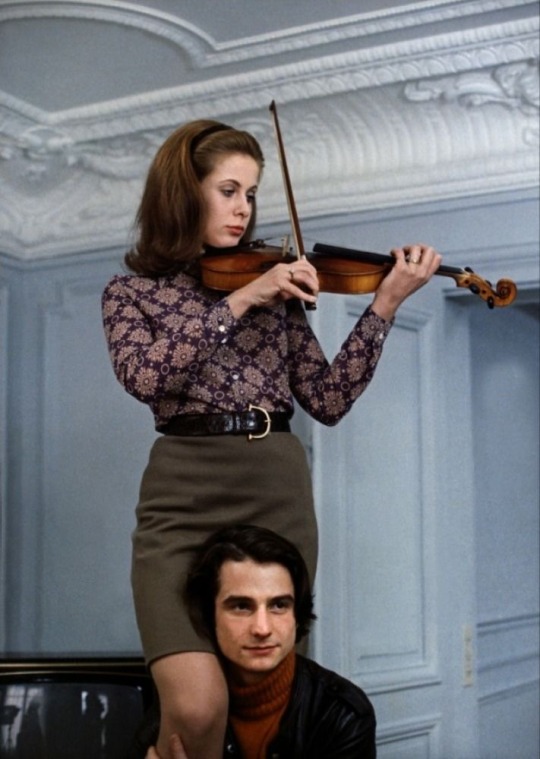
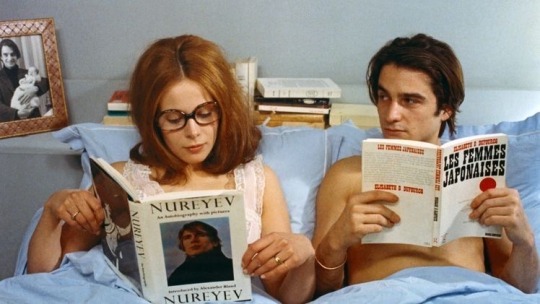
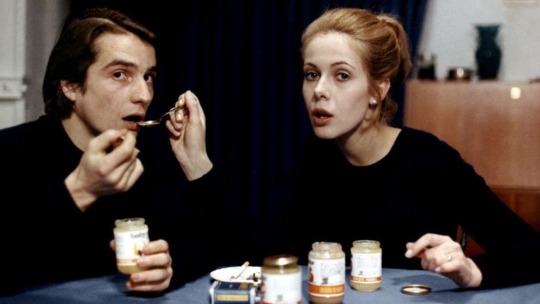
Jean Pierre-Léaud and Claude Jade in Domicile conjugal/ Bed and Board (1970) dir. François Truffaut
#domicile conjugal#bed and board#francois truffaut#jean pierre leaud#jean pierre léaud#claude jade#cinema#nouvelle vague#french film#french movie#french cinema#french new wave#new wave#films#film#truffaut#70s
32 notes
·
View notes
Text
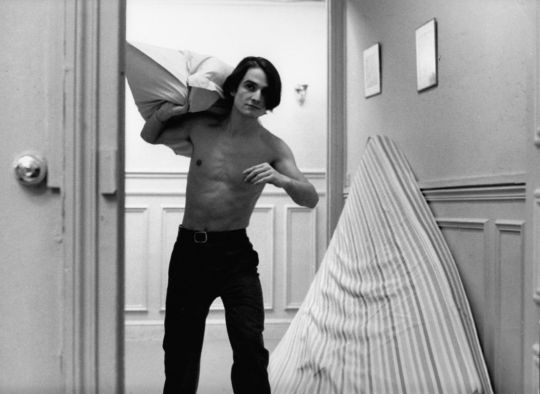
Jean-Pierre Léaud in "Domicile Conjugal" (1970)
52 notes
·
View notes
Text
The Antoine Doinel Cycle
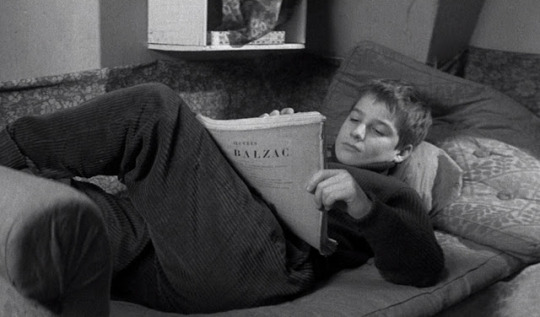
Jean-Pierre Léaud in The 400 Blows (François Truffaut, 1959)
Cast: Jean-Pierre Léaud, Albert Rémy, Claire Maurier, Patrick Auffay, Georges Flamant. Screenplay: François Truffaut, Marcel Moussy. Cinematography: Henri Decaë. Film editing: Marie-Josèphe Yoyotte. Music: Jean Constantin.
One of the unquestioned great movies, and one of the greatest feature-film directing debuts, The 400 Blows would still resonate with film-lovers even if François Truffaut hadn't gone on to create four sequels tracking the life and loves of his protagonist, Antoine Doinel (Jean-Pierre Léaud). There are, in fact, those who think that the last we should have seen of Antoine was the haunting freeze-frame at the end of the film. But Antoine continued to grow up on screen, and perhaps more remarkably, so did Léaud, carving out his own career after his debut as a 13-year-old. (It's hard to think of any American child actors who were able to maintain a film career into adulthood as well as Léaud did. Mickey Rooney? Dean Stockwell? Who else?) Having Truffaut as a mentor certainly helped, but Léaud had an unmistakable gift. He is on screen for virtually all of the 99-minute run time, and provides a gallery of memorable moments: Antoine in the amusement-park centrifuge, Antoine in the police lockup, Antoine on the run -- in cinematographer Henri Decaë's brilliant long tracking shot. And my personal favorite moment: when the psychologist asks Antoine if he's ever had sex. Léaud responds with a beautiful mixture of surprise, amusement, and embarrassment. It's so genuine a response that I have to think it was improvised, that Truffaut surprised Léaud with the question. But even so, Léaud never drops character in his response. This praise of Léaud is not to undervalue the magnificent supporting cast, or the haunting score by Jean Constantin. It's a film in which everything works.
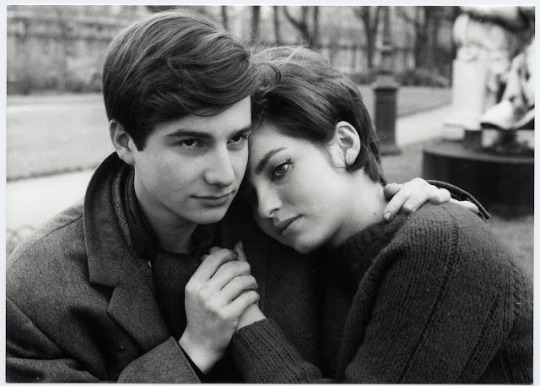
Jean-Pierre Léaud and Marie-France Pisier in Antoine and Colette (François Truffaut, 1962)
Cast: Jean-Pierre Léaud, Marie-France Pisier, Rosy Varte, François Darbon, Patrick Auffay, Jean-François Adam. Screenplay: François Truffaut. Cinematography: Raul Coutard. Music: Georges Delerue.
Four years after he made The 400 Blows, Truffaut was asked to contribute to an anthology of short films by directors from various countries to be called Love at Twenty. As he had with the first film, Truffaut drew on his own experience, an infatuation with a girl he had met at the Cinémathèque Française. And since Léaud was available -- he had worked with Julien Duvivier on Boulevard (1960) after completing The 400 Blows -- it made sense for him to play Antoine Doinel again. A narrator tells us that Antoine had been sent to another reform school after escaping from the first, and that this time he had responded well to a psychologist: After leaving school, he has found a job working for the Phillips record company and is living on his own. Then he sees a pretty young woman at a concert of music by Berlioz and falls for her. Colette (Marie-France Pisier) is not much interested in him, but she is evidently flattered by his advances. Her parents like Antoine and encourage him so much that he rents a room across the street from them. (Truffaut had done the same thing during his crush.) But one evening when he comes to dinner at their apartment, a man named Albert (Jean-François Adam) calls on Colette and she leaves Antoine watching TV with her parents. It's a droll little film, scarcely more than an anecdote, and the stable, lovestruck Antoine doesn't seem much like either the rebellious Antoine of the first film or the more scattered Antoine of the later ones in the cycle.
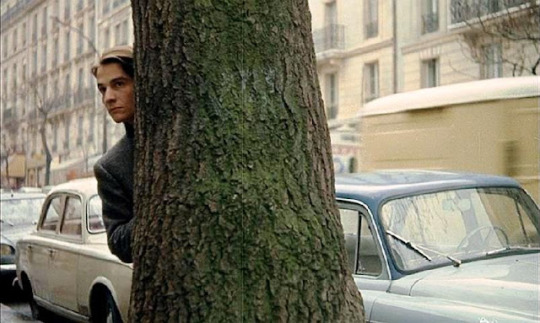
Jean-Pierre Léaud in Stolen Kisses (François Truffaut, 1968)
Cast: Jean-Pierre Léaud, Claude Jade, Michael Lonsdale, Delphine Seyrig, Michael Lonsdale, Claire Duhamel, Daniel Ceccaldi. Screenplay: François Truffaut, Claude de Givray, Bernard Revon. Cinematography: Denys Clerval. Production design: Claude Pignot. Film editing: Agnès Guillemot. Music: Antoine Duhamel.
The Antoine of Stolen Kisses is in his 20s, but has reverted to the more haphazard ways of his adolescence: He has been kicked out of the army, and now relies on a series of odd jobs to get by. But he has also renewed acquaintance with a young woman he met before going into the army, Christine Darbon (Claude Jade). Like Colette's parents, hers are quite taken with Antoine, and they help him get a job as a night clerk in a hotel. He gets fired from that job after helping a private detective who is spying on an adulterous couple, but the detective helps Antoine get a job with his agency. While working for the detective agency, he has to pose as a clerk in a shoe store, and winds up in a liaison with the store owner's wife, Fabienne (Delphine Seyrig). When that ends badly, he becomes a TV repairman, which brings him back to Christine, with whom he winds up in bed after trying to fix her TV. At the film's end, a strange man who has been following Christine comes up to her and Antoine in the park and declares his love for her. She says he must be crazy, and Antoine, who perhaps recognizes his earlier infatuation with Colette in the man's obsession, murmurs, "He must be." Stolen Kisses is the loosest, funniest entry in the cycle, though it was made at a time when Truffaut was politically preoccupied: The film opens with a shot of the shuttered gates of the Cinémathèque Française, which was shut down in a conflict between its director, Henri Langlois, and culture minister André Malraux. This caused an uproar involving many of the directors of the French New Wave. Some of Antoine's anarchic approach to life may have been inspired by the rebelliousness toward the establishment prevalent in the film community. But it's clear that the idea of a cycle of Antoine Doinel films has been brewing in Truffaut's mind: There is a cameo appearance by Marie-France Pisier as Colette and Jean-François Adam as Albert, now married and the parents of an infant.

Claude Jade and Jean-Pierre Léaud in Bed and Board (François Truffaut, 1970)
Cast: Jean-Pierre Léaud, Claude Jade, Claire Duhamel, Daniel Ceccaldi, Hiroko Berghauer. : François Truffaut, Claude de Givray, Bernard Revon. Cinematography: Néstor Almendros. Production design: Jean Mandaroux. Film editing: Agnès Guillemot. Music: Antoine Duhamel.
Antoine and Christine have married, and they have settled down in a small apartment. (There's some indication that it's paid for by her parents.) She gives violin lessons and he sells flowers -- carnations, which he dyes, using some environmentally questionable potions. But settling down isn't in Antoine's nature, and when Christine gets pregnant he looks for more lucrative work. He finds a curious sinecure in a company run by an American: Antoine maneuvers model ships by remote control through a mockup of a harbor. ("It gives me time to think," he says.) One day, a Japanese businessman comes to see the demonstration, accompanied by a pretty translator named Kyoko (Hiroko Berghauer), and Antoine is soon involved in an affair with her. Naturally, this precipitates a breakup, though by film's end they have seemingly reconciled. Still, it's obvious that the marriage is not destined to be permanent. They can't even agree on a name for their son: She wants him to be called Ghislain, and he wants to call him Alphonse. Antoine wins out by a trick: He's the one who goes to the registry office to legalize the boy's name. Antoine also spends time writing a novel about his boyhood, to which Christine objects: "I don't like this business of writing about your childhood, dragging your parents through the mud. I don't know much but I do know one thing: If you use art to settle accounts, it's no longer art." Truffaut had his own regrets about the portrait of his parents in The 400 Blows. Less farcical than Stolen Kisses, Bed and Board still has a strong vein of comedy tinged with melancholy.
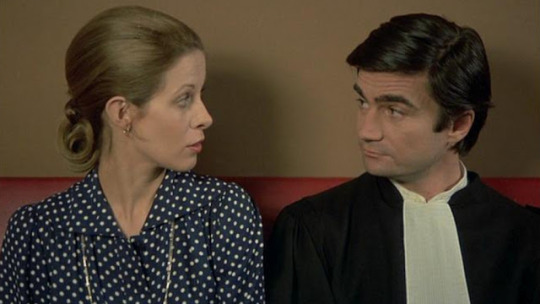
Claude Jade and Jean-Pierre Léaud in Love on the Run (François Truffaut, 1979)
Cast: Jean-Pierre Léaud, Marie-France Pisier, Claude Jade, Dani, Dorothée, Daniel Mesguich, Julien Bertheau. Screenplay: François Truffaut, Marie-France Pisier, Jean Aurel, Suzanne Schiffman. Cinematography: Néstor Almendros. Production design: Jean-Pierre Kohut-Svelko. Film editing: Martine Barraqué. Music: Georges Delerue.
Truffaut admitted that he wasn't happy with the final film in the cycle. It's a bit too heavily reliant on flashback clips from the four earlier films, and if it's intended to show that Antoine has finally stabilized now that he's in his 30s and divorced from Christine, it doesn't quite make the case. He has a new girlfriend, Sabine (Dorothée), his novel has been published several years earlier, and he works as a proofreader for a printing house. He's on friendly terms with Christine, and agrees to take their son, Alphonse, to the train station when the boy leaves for a summer music camp. At the station, he runs into Colette, now a defense lawyer, who is on her way to confer with a client -- a man who has murdered his 3-year-old boy. Perhaps a little too coincidentally, Colette is involved with Sabine's brother, Xavier (Daniel Mesguich), and she has bought a copy of Antoine's novel to read on the train. Antoine impulsively boards the train, and sets up a meeting with Colette in the dining car, after which she invites him back to her compartment. All of this sets up a series of revelations: Colette's marriage to Albert broke up after their small daughter was killed by a car. She claims that she supplements her small income as a lawyer by prostituting herself with men she meets on trains. Antoine finally made peace with his mother after her death when he met her old lover, M. Lucien (Julien Bertheau), who persuaded him to visit his mother's grave. (There is a flashback to the scene in The 400 Blows when Antoine, playing hooky, sees his mother kissing a strange man on the street.) Antoine became infatuated with Sabine after hearing a man in a phone booth arguing with a woman on the other end of the line and then tearing up her photograph. Antoine picked up the pieces from the floor, put them together, and after some sleuthing, discovered the woman was Sabine. His marriage to Christine finally broke up after he slept with her friend Liliane (Dani), who he previously had thought was having a lesbian relationship with Christine. And so on. The result of all the flashbacks and revelations is not to round out the Antoine Doinel saga, but to make Love on the Run feel over-contrived.
#The 400 Blows#Jean-Pierre Léaud#Marie-France Pisier#François Truffaut#Antoine and Colette#Stolen Kisses#Bed and Board#Claude Jade#Love on the Run
17 notes
·
View notes
Photo
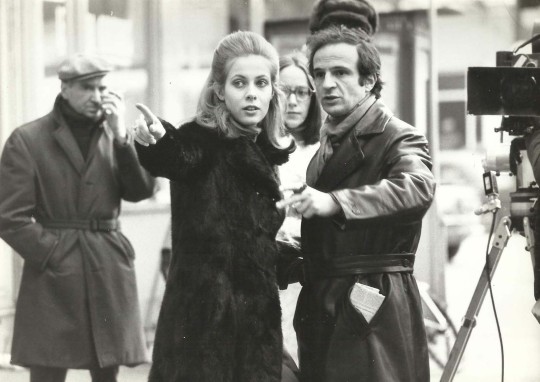
Claude Jade with François Truffaut during the making of Bed and Board (1970)
#cinema#bed and board#claude jade#actress#dijon#François Truffaut#director#Paris#france#nouvelle vague
8 notes
·
View notes
Text
A very happy birthday in the afterlife to François Truffaut!!
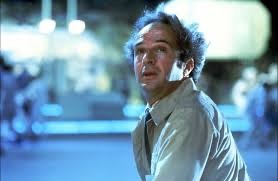
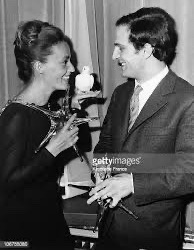
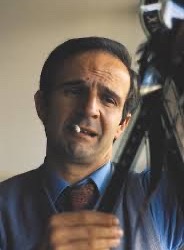
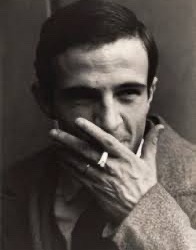
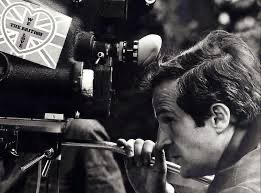
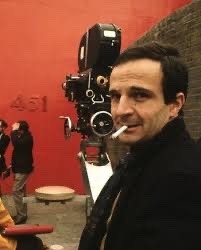
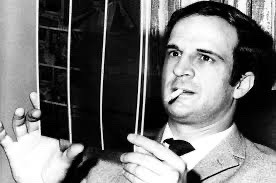
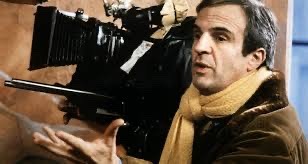
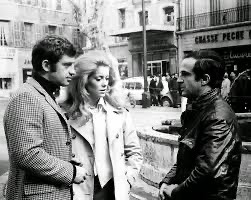

#francois truffaut#french new wave#the 400 blows#day for night#jules and jim#fahrenheit 451#close encounters of the third kind#the last metro#the wild child#the soft skin#bed and board#stolen kisses#the bride wore black#mississippi mermaid#cinema#filmmaker#the little thief
8 notes
·
View notes
Text

bed and board by françois truffaut (1970) x jacquemus ss20 - la vie en france des oranges des couleurs et des filets de pêche
0 notes
Photo
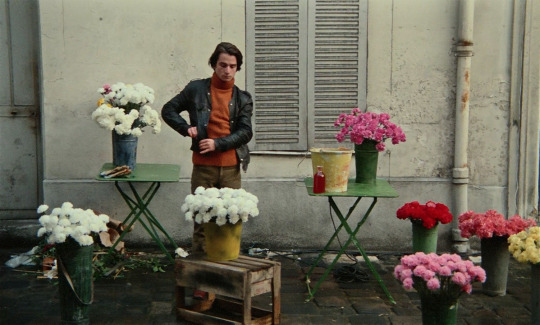

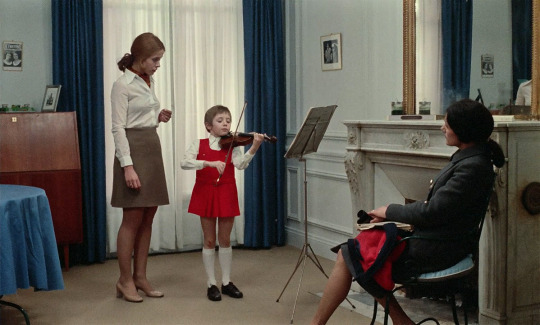
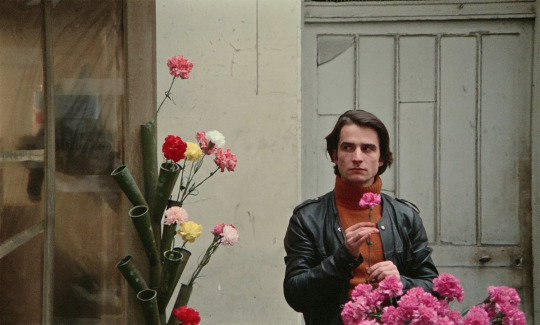
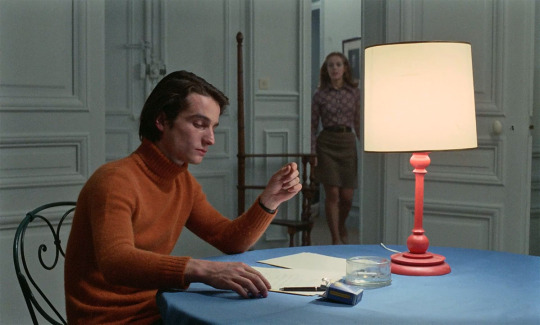


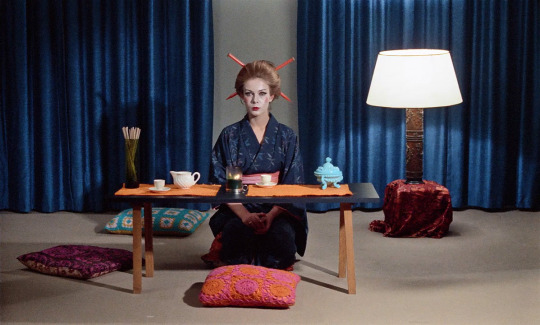

Domicile conjugal, François Truffaut, 1970
0 notes
Text




𝔰𝔩𝔢𝔢𝔭𝔶 𝔟𝔩𝔲𝔢.
#blue#deep blue#blue moodboard#blue archive#blue sky#night#moon#cat#coffee#cobalt#cobalt blue#blue hour#blue aesthetic#blue mood board#sweater#bed#cozy#warm#night owl#rainy night#full moon#stars#star#academia#aesthetic#academic#academics#dark acamedia#romantic academia#dark academia
226 notes
·
View notes
Text

gonna turn in early and catch up on some zzz's hehe
#hc: ghost claims he sleeps as str8 as a board but he actually curls up into a fetal position (he is me like for real)#also uses arms as a pillow instead of an actual pillow (also me LOL iT'S JUST MORE COMFY TBH)#n e ways- i haven't had a full 8hrs since last friday lol#i've been so busy.. even during the weekend i Hate it!!!!!!!#ok im going to bed fr. goodnight y'all#my art#2024#call of duty#call of duty: modern warfare#call of duty: modern warfare ii#call of duty: modern warfare iii#cod#cod mw#cod mwii#cod mwiii#modern warfare#mw#mw2#mw3#simon riley#simon ghost riley#ghost#ghost cod#art#fanart#digital art#digital drawing#sketch#doodle#video games
615 notes
·
View notes
Text









Age Regression Stimboard Pt.7 Bed Time
Requests are open check pinned post
1 | 2 | 3
4 | 5 | 6
7 | 8 | 9

#stim board#stimblr#stimboard#visual stim#stim gifs#age regressor#sfw agere#age regression stimboard#agere stimboard#night stim#night stimboard#bed time stim#bed time stimboard#bed time#agere
385 notes
·
View notes
Text









Okay, starting off is the mask.
I figured I should post a sort of "devolution" to show where it started and what it became, because you cherish the end product more if you remember where you came from.
#mask was exhausting#i learned foam core poster board and paper mache clay dont like to play well together if you put too much clay on in the first pass#all that excess moisture soaked right into the board and warped it like a mother fucker‚ no remorse#but it ended up being fine and looking fine cause no one was looking at me from the side#and you cant tell it was warped from the front#honestly i think it kindof gave it a bit of a 'mascot eyes' effect#where mascot eyes are pointed down to look at children‚ Sun's face was incidentally curled inwards to give it an encompassing effect#paper mache smells like mold also#and grows mold#black mold to be exact#i had that bowl under my bed on my desk for i dont know how long#my art#fnaf#fnaf sb#daycare attendant#sun fnaf#my cosplay#five nights at freddy's#the tape on the eyes is temporary btw as yall could tell#had to protect his beautiful peepers you know?
247 notes
·
View notes
Note
Crowley: *gets bored and doodles rude things on Aziraphale’s coffin with washable marker*
Aziraphale: 🧿👄🧿
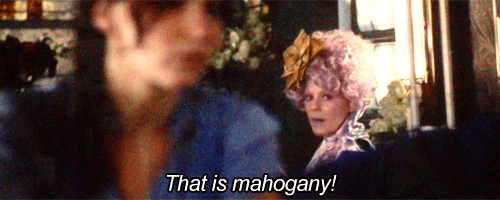
#vampire au#ask a rat#haven’t actually decided if he sleeps in a coffin or a divine four poster bed#his windows are fuckin boarded up probably so it’s not like any lights getting in#the AESTHETIC tho
133 notes
·
View notes
Note
What are your thoughts on floor sleeping?
I met a guy right out of high school that slept on the floor and I'm pretty sure he still does.
My brother who is 29 just recently took his bed out and now sleeps right on the floor as well. He says it took a bit of time to adjust but that it actually feels better than a bed now. He doesn't have any existing back or health problems.
As for myself, for the past few years I used to occasionally get night sweats and would soak the sheets. Once that happened, I also would just sleep on the floor for a few hours till the sheets dried without really any issues. I'm 32 now for reference.
I'm wondering if our primary sleeping positions have anything to do with our ability to tolerate it.
To be honest I think this one really depends on someone’s level of fitness. I could not possibly survive a night on the floor because I simply don’t have the muscles to keep my spine aligned. I’d be in agony.
If you’re fit enough, you can do it. But ultimately I think you wouldn’t rest as well trying to maintain your lumbar curve unassisted all night.
#ask ffs#bed talk#I’d be more on board with a pillow for head and lumbar#I think then you’d be alright
81 notes
·
View notes
Text

391 notes
·
View notes
Text










self indulgent; homesick stimboard.
x x x / x x x / x x x
#boyre#boyre moodboard#age regression#stimboard#stim gifs#visual stim#bed#pillows#cozy#hot chocolate#whipped cream#toy train#toy horses#books#statue#hands#food#berries#coffee#gif#gifs#gif moodboard#agere moodboard#agere aesthetic#agere board#boy regression#boy regressor#sfw blog#sfw interaction only#☕; stimboard
99 notes
·
View notes